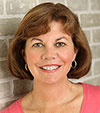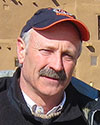Nonfictionary

Nonfiction Setting and My Comfy Chair
I’m fussy when it comes to choosing where to sit. The comfy chair or the well-worn red sofa? Lights on high or nicely dimmed? Soft throw blanket? Sometimes even in a restaurant, I ask to sit at a different table than the one the host chooses because it doesn’t feel right. My husband rolls his eyes. Setting whether in

Elements of a Nonfiction Booktalk
Not long ago, I saw this list of recommended components for a booktalk: Title Author Genre Main character Plot bit And boy, did it frost my britches. Why? Because the person who wrote it assumed the booktalker was recommending a fiction title. What about nonfiction? It’s important to booktalk these titles too because many kids prefer nonfiction. So

Swimming in a Sea of Ideas
Where do successful nonfiction writers get their ideas? So many places! The topics a nonfiction writer can write about are limitless. Sure, some ideas have been written about before, but nonfiction writers take that as a challenge. They ask what unusual angle they might take or if there is a different (or better) format in which to deliver

You Write Books with … Messages?
Yes. Yes I do. Sure, I know there’s a whole school of thought that says “sharing a message” in a children’s book is something to avoid. That children will learn more, feel more, by reading books — stories — that evoke an emotional response and increase empathy through strong characterization and vivid language. Yes. Yes that’s true. But.… Sometimes children, and the adults raising

Summery
A well-known journalist in a local bagel joint, after not seeing me for a few weeks, would always greet me with, “Welcome back, Pete.” It wasn’t because he knew where I’d been, but he knew I traveled a lot to write my children’s adventure books. Since I’d seen him last, I’d probably been out climbing Aztec or Mayan temples,

The Coolest Fact
Reports about animals are boring, and they usually go like this: Honeybees are insects. Honeybees eat nectar. Honeybees live in a hive. See? BORING!

Sorry — I Mean Structure—Seems To Be the Hardest Word
There’s an old Elton John song titled, Sorry Seems to be the Hardest Word. Well, I wonder if he’d mind if I changed the title to, Structure Seems to be the Hardest Word. Structure is a lot like voice; it needs to be present, yet it must be invisible and unforced. Without it, the writing may fall down just

Re-claiming Women’s History — Still
At a meeting at the Dallas Public Library one day, a retired chief executive explained to me his vision for a permanent display on a soon-to-be-renovated floor honoring the men who built up the city’s downtown after World War II. I looked at him skeptically. “What about the women?” “There aren’t any,” he snapped back. Of course there were! But because

How Infographics Can Help Students Avoid Plagiarism
My book Pinocchio Rex and Other Tyrannosaurs, is chockful of text features, including this fun infographic: The process of designing it began with a VERY rough sketch by me. Let’s face the facts. My drawing skills leave a lot of be desired, but this sketch was enough to give the talented folks in the HarperCollins art department an

In Her Own Words:
The Impact of Personal Accounts on Biography
I admit it. I am a history nerd. Like all biographers, I am fascinated by the past. I love learning about the world of long ago: what people wore, what they ate, the jobs they had, the wars they fought. And nothing thrills me more when I am researching than to discover a firsthand account, a personal writing … a primary source. How do

Working with an Editor
“What’s it like to work with an editor?”is a question I often get from teachers, students, and aspiring authors and it’s one that takes some time to fully answer. In the best situations, an editor’s relationship to her author is like a coach’s relationship to an athlete: knowing her author’s personality, talent, and potential, she encourages her strengths,

The Good Thing about Bad Words
It’s mid-January, I have this Nonfictionary deadline, and all I can think about is President Trump’s latest vulgarity. His recent word choice about certain countries jumped from my phone like an electrical charge, literally and physically jolting me backwards. For the rest of the day and beyond, my soul hurt and my spirit sagged. But it was

A Science Rookie: Learning to Craft a Science Narrative When
You Know Next to Nothing about Science
Enter the freshman chemistry tutor dressed in torn jeans and a flannel shirt. His job? To get me through entry level chemistry at Iowa State University. My first college plan was to major in Hotel and Restaurant Management because my father owned a company that did business with these types of institutions. So, what the heck, I didn’t

Biography: How to Decide
What Goes into the Soup Pot (and What Doesn’t)
It is cold up here in the north country, so lately my thoughts have turned to creating a steaming pot of soup. For soup, you have to hit the highlights; the chicken, onions, a carrot or two. If you toss in too many ingredients, nothing will stand out and the result will be a muddled mess. You must

A Picture and a Thousand Words
As a reporter and editor for decades, I often heard people accuse my colleagues and me of “bias,” of having a particular slant on a story — usually a point of view that the accuser disputed. It was a common charge, especially if the issue was controversial. But in truth, reporters are no different than anyone else. Everyone comes to a subject with some
